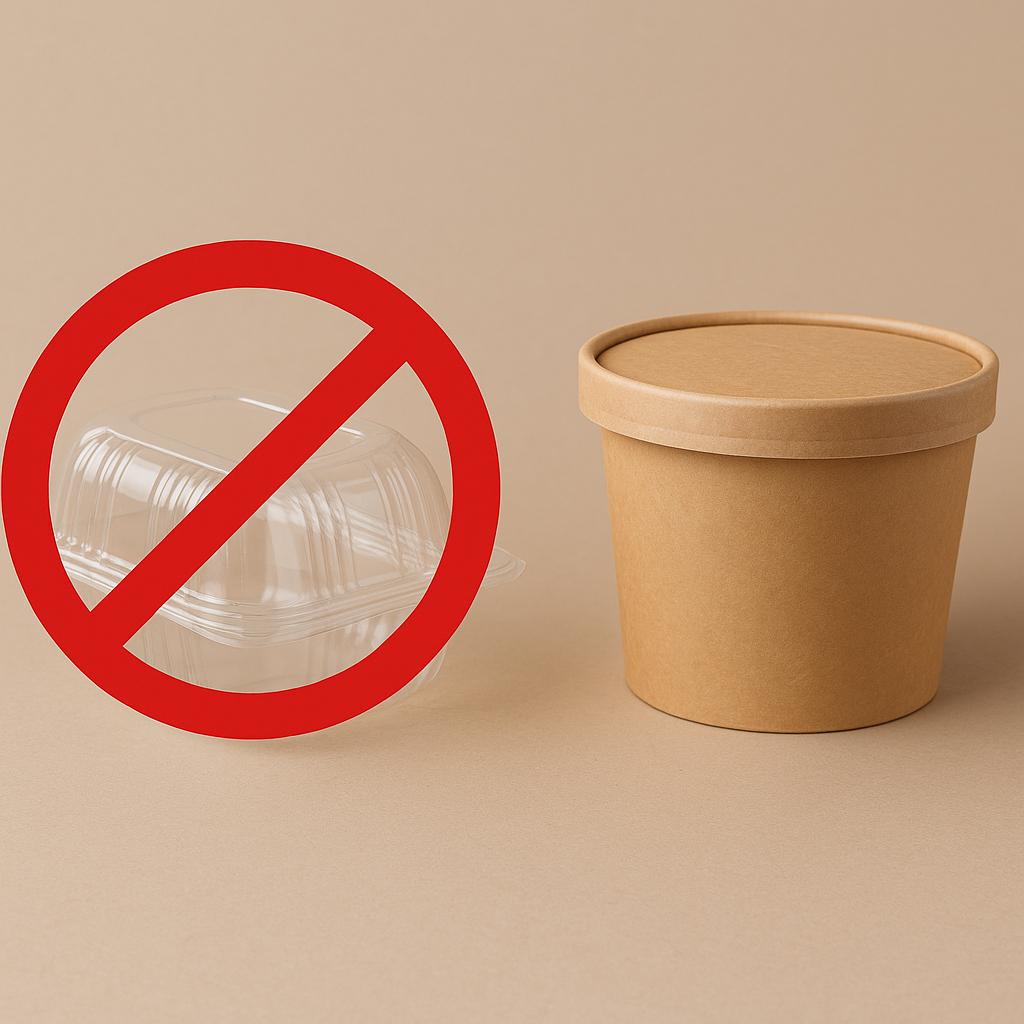Publication date: 2025-06-02
Do plastic packaging bans help the planet – or just create confusion?
In recent years, the plastic packaging industry — including producers of recycled LDPE and HDPE films — has faced increasing regulatory pressure. One of the most debated measures is the ban on plastic packaging for ready-to-eat meals consumed on-site. The problem? These laws hit eco-conscious plastic manufacturers instead of solving real environmental issues.
The ban on plastic packaging for on-site meals – who really benefits?
New EU legislation (France, Spain, and Poland starting in 2026) restricts the use of plastic packaging for food consumed on-site, including:
- plastic bags for takeaway meals,
- HDPE/LDPE food-grade films with print,
- hygienic film-based food containers, even if recycled.
Instead, the law favors thick, coated paper trays or bowls — which still contain plastic layers, are less hygienic, difficult to recycle, and have a larger carbon footprint.
Why this regulation hurts both logic and the environment
As a manufacturer of recycled plastic bags and films, we know that modern packaging:
- is hygienic, lightweight, and barrier-resistant, perfect for the food and medical industries,
- can be made using recycled materials, in line with circular economy goals,
- is efficient in transport and storage, unlike bulky paper options,
- can be recycled, provided it’s allowed by law.
Yet, these sustainable products are being phased out — in favor of so-called "natural" materials that often perform worse and pollute more over their lifecycle.
What do the numbers say? LCA doesn’t lie
Life Cycle Assessment (LCA) studies by McKinsey and Utrecht University show:
“In many cases, HDPE and LDPE plastic packaging has a lower environmental impact than paper-based alternatives – especially if those include coatings or composite materials.”
These aren’t industry opinions — they’re data-backed facts that lawmakers often overlook.
We support change – when it makes sense
At Uniplast, we fully support sustainable change. We:
- produce HDPE and LDPE films using recycled material,
- optimize film thickness for performance and material savings,
- use water-based printing inks,
- reduce industrial waste at every step.
But regulations that ban even the most eco-friendly plastic packaging while approving "paper" containers with hidden plastic layers are simply misleading to consumers and damaging to responsible producers.
Conclusion – don’t ban plastic, educate smarter use
Not all plastic is the problem. A properly designed recycled LDPE or HDPE bag is often better than thick, laminated paper. Instead of banning materials blindly, let’s focus on LCA, public awareness, and support for plastic recycling technologies.
#PlasticBags #LDPEFilm #HDPEFilm #FlexiblePackaging #RecycledPlasticBags #FoodPackaging #MedicalPackaging #SustainablePlastics #RecycledLDPE #PlasticPackagingSolutions #EcoPackaging #Uniplast #CustomPlasticBags #FilmForIndustry






